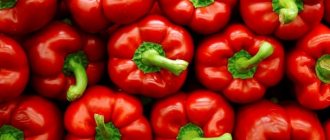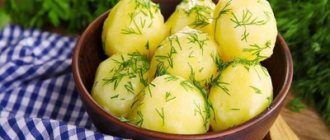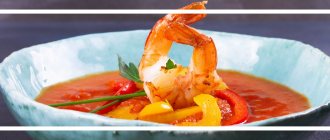Pepper is one of the most beloved and revered vegetable crops in all countries of the world. It is consumed salted, fresh, pickled, and used for preparing lecho, meat and fish dishes. Dried pepper is a popular seasoning for soups, salads, and various side dishes. In folk medicine, pepper tincture is used to treat intestinal infections, dysbiosis, and eating disorders such as anorexia.
At the same time, the high concentration of hot essential oils determines a fairly large list of contraindications. The leading position in it is occupied by inflammatory diseases of the digestive system. This article will discuss whether it is possible to include pepper in your diet if you have gastritis.
Is it possible to eat pepper if you have gastritis?
For gastritis, it is recommended to avoid hot varieties of pepper. It is permissible to consume sweet peppers in limited quantities. You should not include more than one fruit in your daily diet, as the high fiber content will cause additional stress on the digestive organs.
For gastritis, it is recommended to avoid hot varieties of pepper; it is permissible to consume sweet pepper in limited quantities.
Bell pepper is contraindicated if gastritis is accompanied by high acidity or peptic ulcers, as it contains a lot of vitamin C. It is recommended to eat the vegetable only after heat treatment, since it is more difficult to digest when fresh. During the diet, you should not eat fatty or fried foods. Therefore, baking, boiling or steaming is best.
Hot peppers are sold in the form of pods or powder. It may be red or green. One of the most common types is chili. Hot pepper is contraindicated for people suffering from any diseases of the digestive tract! It should be eaten with caution in the presence of arrhythmia, angina pectoris or other ailments that impair the functioning of the cardiovascular system.
Black pepper increases appetite and improves digestion, normalizes the gastrointestinal tract by reducing gas formation and removing toxins. Excessive use of black pepper can cause a burn to the oral mucosa.
Preference should be given to sweet varieties of pepper, since substances that give a bitter taste negatively affect the functioning of the digestive system. You should not buy a vegetable with a dry stalk, wrinkled skin, or spots.
Doctors do not recommend eating bell peppers if you have high acidity.
Bell peppers are conventionally divided into “boys” and “girls”. Vegetables of the first type consist of three sectors, the second - of four. “Girls” are usually sweeter, so they fit perfectly into the diet.
Pepper for gastritis with high or low acidity
With this disease, any fatty, fried, smoked and salty foods are excluded from the diet. Gastritis with high acidity allows the consumption of boiled, stewed or baked foods. The patient can diversify his diet with pepper, but only during the recovery stage and in small quantities.
Doctors do not recommend eating bell peppers if you have high acidity. It contains alkaloids and phytoncides in large quantities, they negatively affect the gastric mucosa. The raw product contains a large amount of useful vitamins and microelements. But it is better if the patient eats stewed or steamed peppers. All beneficial substances will be preserved, and it will be easier for the stomach to digest such a product.
The raw product contains a large amount of useful vitamins and microelements. But it is better if the patient eats stewed or steamed peppers. All beneficial substances will be preserved, and it will be easier for the stomach to digest such a product. Doctors seriously restrict their patients during the period of exacerbation of the disease.
So, if gastritis has low acidity, then you should not eat fatty and fried foods. They will lead to severe irritation of the stomach walls. When the patient gets much better, he can diversify his diet with sweet or bell peppers. But before use, the product must undergo heat treatment. But you can’t eat stuffed peppers. It is recommended to give preference to baked or boiled products. Even better if these are steamed dishes.
Gastritis: features of the disease
The disease is characterized by inflammatory-dystrophic changes in the mucous membrane, which consists of a single-layer highly prismatic epithelium, loose connective tissue fibers, a muscular plate and a submucosal layer. Histologically, patients with gastritis have increased activity of the parietal (lining) cells of the stomach, which secrete chlorine and hydrogen ions.
An aqueous solution of hydrogen chloride is called hydrochloric acid. Normally, it is necessary for the comfortable breakdown of proteins and the inhibition of pathogenic microflora (including spiral-shaped gram-negative bacteria Helicobacter pylori - inducers of infectious gastritis). If too much hydrochloric acid is released, the mucous membrane becomes inflamed and gastritis with high acidity develops - one of the most common clinical forms of gastritis.
In addition to inflammatory reactions and dystrophy of the gastric mucosa, gastritis also causes impaired regeneration (the ability to self-heal) and gradual atrophy of the epithelial lining of the stomach with signs of replacement of normal glandular tissue with fibrous fiber.
The main clinical manifestation of any form of gastritis is epigastric pain syndrome. It can be combined with other “classic” symptoms: nausea, flatulence, belching, bad breath, upset stool, heartburn, “boiling” and “rumbling” in the stomach.
Helicobacter pylori is one of the causes of gastritis
Pepper for gastritis
Gastritis is a disease that requires light food that does not irritate the stomach lining. Pepper is a type of spice that is strictly prohibited.
Black pepper for gastritis
It is one of the prohibited spices for gastritis. But at the same time, some people manage to use the plant itself as a medicine for low acidity, of course, outside the acute stage. Still, black pepper has its advantages. Yes, there is nothing to be surprised about, almost everything that is given by nature has both negative and positive properties.
It promotes rapid digestion of food. With its help, the stomach produces more gastric juice, which means there will be no feeling of discomfort after overeating. For gastritis with high acidity, it normalizes acidity, eliminates belching and burning in the abdomen.
Red pepper irritates the mucous membrane of the digestive system, so doctors prohibit its use for gastritis
With all this, there is an active contraction, the body is cleansed and there will be no flatulence.
Red pepper for gastritis
This type of seasoning can also cause irreparable harm to health due to stomach inflammation or ulcers. It irritates the mucous membrane. But, if you treat this spice correctly and wisely, you can even help your sore stomach. This is due to the fact that ground red pepper has the ability to destroy bacteria and cleanse the body of rotten ulcers. Infusion for the treatment of gastritis: 0.5 tsp. pour 1 liter of boiling water and let it brew until it cools down. Half an hour before meals, drink 1 teaspoon.
Bell pepper for gastritis
Is it possible to eat bell peppers if you have gastritis? Gastroenterologists warn that this vegetable must be very carefully included in the diet of all patients suffering from diseases of the gastrointestinal tract. Despite the very rich mineral and vitamin composition, there are clear contraindications to the consumption of this vegetable.
The importance of diet in the complex treatment of gastritis
Treatment of any form of gastritis involves following a special diet. Depending on the nosological qualifications, the stage of the inflammatory process, signs of ulceration and scarring of the mucous membrane and other objective factors, the patient is prescribed a special diet (in accordance with clinical protocols for the treatment of acute, sluggish, recurrent and other diseases of the gastrointestinal tract, these are treatment tables according to Pevzner) .
Therapeutic nutrition for gastritis is based on three basic principles:
- Mechanical sparing. All food is crushed to the greatest possible extent (thin porridges, pureed soups, soft casseroles, etc.).
- Thermal sparing. Eating too hot or, conversely, cold foods is not allowed.
- Chemical sparing. The diet limits (or completely eliminates) foods that can irritate the gastric mucosa.
Important! Failure to comply with the prescribed diet can lead not only to an exacerbation of the underlying disease, but also to the appearance of secondary pathologies, for example, ulceration of the gastric epithelium.
Is it possible to use bell pepper for gastritis?
Raw vegetables are prohibited in case of any disturbances in the functioning of the digestive system. The rough structure can cause harm - injure the mucous membrane, provoke pain and inflammation. After heat treatment, the skin comes off on its own and the flesh softens. Doctors recommend turning vegetables into liquid or concentrated purees. Stuffed peppers are especially popular for gastritis and pancreatitis. The permissible daily dose is 1 pod.
How to use bell pepper for gastritis:
- if there are disturbances in the functioning of the gastrointestinal tract, it is prohibited to eat any raw or fresh vegetables;
- for chronic inflammation of the mucous membrane, about 100 grams per day is allowed, after careful thermal and mechanical treatment;
- rough, difficult-to-digest food is prohibited during an exacerbation of the disease; in order to diversify the diet, you should wait until remission occurs;
- it is better to give preference to sweeter varieties that are colored yellow or orange; they irritate the mucous surface less;
- stuffed vegetables are a wonderful alternative to fresh herbs; the assortment and filling can be changed according to the season.
Bell pepper is included in the list of acceptable foods for gastritis, however, after each consumption, the patient should pay attention to his well-being. If alarming symptoms appear, this vegetable will have to be completely excluded from the diet.
Vegetables that you can eat when you have inflammation of the stomach lining
Orange - contain a large amount of fiber, β-carotene, which protects the walls from the development of erosive gastritis. The ideal choice is carrots, zucchini, corn, sweet potatoes, and pumpkin, which require heat treatment.- Red ones – prevent the development of gastritis. Red potatoes and beets are easily digestible and do not cause irritation to the mucous membranes. As for radishes and blue cabbage, their digestion is accompanied by the release of gases, so it is advisable to completely exclude these vegetables from the patient’s diet. You should immediately forget about tomato juice and red tomatoes, because they contain large quantities of acids that irritate the intestines and stomach walls.
- Green - their digestion is accompanied by the release of a large amount of gastric juice. Green onions, peppers, asparagus, and Brussels sprouts can be eaten only after heat treatment.
- Violet - accelerate the healing process of gastritis, prevent the development of cancer and various diseases of the cardiovascular system. Ideal representatives of this group are potatoes, eggplant, carrots, and chicory salad.
- White - contain allicin, selenium elements, support heart function, lower cholesterol levels, increase the body's resistance to many diseases, including gastritis. Potatoes, parsnips, and celery root should be consumed only after heat treatment.
How to cook bell peppers for gastritis
Bell peppers must be properly processed before eating. It can be one of the elements of a steamed vegetable stew; for example, a mix with carrots and cabbage will fit perfectly into the diet. The fruits can be baked in the oven, after which you need to remove the peel. You can eat it as a separate dish, or you can add it to porridge or eat it with meat. The daily permitted dose of bell pepper for patients with gastritis is approximately 1 fruit.
Recipe for gastritis from bell pepper
Stuffed peppers will be a tasty and at the same time healthy dish.
To prepare it you will need:
- sweet pepper fruits;
- minced lean meat;
- rice porrige;
- low-fat sour cream;
- a little flour;
- sunflower oil.
Stuffed peppers will be a tasty and at the same time healthy dish. Peel the fruits from seeds, remove the “tail”, and keep in boiling water for about a minute. Mix rice with meat and vegetable oil, stuff vegetables with the mixture, and place in a saucepan.
Meanwhile, pour flour into a frying pan and pour a small amount of hot water into it, in which you kept the pepper, stir. You should get a thin mass, to which you need to add sour cream - the sauce is ready. Pour it over the stuffed peppers and simmer until tender over low heat.
Is it allowed to eat red pepper if you have gastritis?
It is not recommended to use pepper for gastritis, as it can cause complications. But this strict rule applies specifically to the period of exacerbation of the disease. Doctors allow their patients to eat this vegetable during remission, but only after heat treatment. The product in its raw form contains coarse fiber, which can increase the inflammatory process, since it is difficult for the stomach to digest it.
Red pepper contains substances that affect the composition of gastric juice and increase the level of hydrochloric acid. Red pepper irritates the mucous membrane of the digestive system, so doctors prohibit its use for gastritis. It not only increases the inflammatory process, but also causes other symptoms, including: pain; burning; discomfort; bleeding.
But sweet peppers also have positive qualities. It is able to have an anti-inflammatory and antibacterial effect. Many patients take a special tincture prepared from this healing vegetable, but only after consulting a doctor.
Pepper as a spice for gastritis
Spices and seasonings are contraindicated for gastritis. And although most of them are useful, they have the common property of irritating the gastric mucosa, which is unacceptable for this disease. Pepper should not be added to dishes, otherwise it will provoke painful attacks, heartburn, colic and even vomiting. Therefore, no matter how much you want to treat yourself to something spicy, you will have to be patient and protect yourself from unpleasant consequences.
Black pepper as a spice for gastritis
Black pepper is strictly forbidden to eat if you have gastritis; in the acute form of the disease it can even cause bleeding.
It is strictly forbidden to eat if you have gastritis; in the acute form of the disease it can even cause bleeding. However, for gastritis with low acidity, it can be a savior. Some patients take 2-3 peas daily and this helps the stomach cope with food digestion. And for gastritis with high acidity, it will relieve the body of flatulence. But you should take it after consulting your doctor first. The spice is strictly contraindicated when the disease is in the acute stage.
Red pepper as a spice for gastritis
This seasoning irritates the mucous membranes, so it is forbidden to use it if you have gastritis. Red pepper will only increase inflammation and lead to pain, burning, discomfort and even bleeding.
However, it has a powerful antiseptic effect and can defeat putrefactive processes in the body. Some patients prepare a special infusion: pour half a teaspoon of spice into a liter of boiling water and leave the drink until it cools completely. 30 minutes before meals, take 1 teaspoon. The use of this remedy is possible only after consulting a physician.











